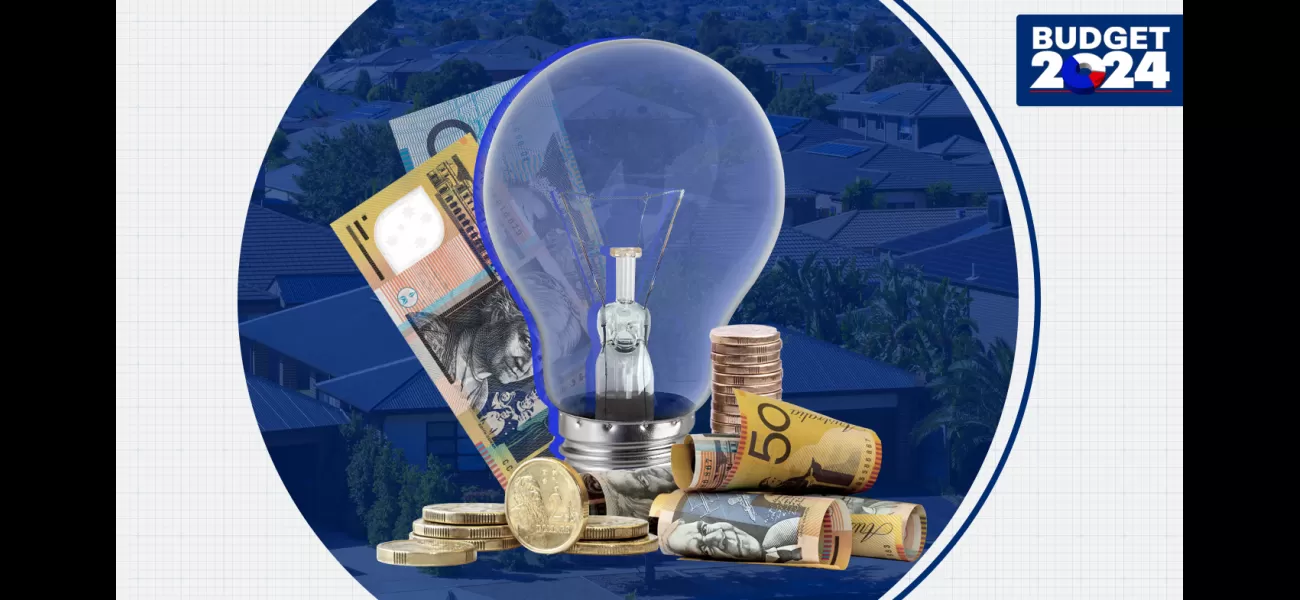$300 in energy relief for all households explained.
$3.5 billion package will benefit everyone in the country and greatly impact inflation.
May 15th 2024.

In an effort to ease the financial burden of everyday life, the Australian government has announced a new cost-of-living package as part of the federal budget. This package includes a $300 discount on energy bills for every household in the country, totaling $3.5 billion in relief. Not only will households benefit from this, but small businesses will also receive assistance through the Energy Bill Relief Fund. Approximately one million eligible organizations will receive a $325 discount on their power bills.
According to Treasurer Jim Chalmers, this relief will begin on July 1 and will apply to all Australians, regardless of their income or circumstances. This is a significant change from last year's budget, which only provided energy bill relief for vulnerable households. Additionally, the government predicts that this policy will have a positive impact on inflation, as cutting energy bills directly reduces inflation.
The main objective of this relief is to help families and businesses while also keeping inflation under control. As Chalmers stated, "Keeping the lights on for families and businesses – and keeping downward pressure on inflation." This is in line with the government's overall goal of tackling both cost-of-living pressures and inflation in one fell swoop.
So who exactly is eligible for this rebate? Unlike last year, there are no specific criteria for eligibility. All 10 million households in Australia will receive the rebate, and small businesses will also be eligible for the $325 discount. This is the same number of businesses that were eligible last year.
To receive the rebate, there is no need to apply or submit any paperwork. The rebate will be automatically applied to energy bills starting on July 1. However, it should be noted that the rebate will be spread out over the 2024-25 financial year, with households receiving $75 per quarter.
Some may be wondering if this rebate will have a negative impact on inflation. According to the government, it will actually have the opposite effect. Because the relief is in the form of a rebate rather than a direct cash payment, it is predicted to bring inflation down by 0.5% this year alone. This is a significant contribution to the government's goal of keeping inflation under 3% by the end of the year.
While the Reserve Bank has more conservative predictions and does not take budget measures into its modeling, the government remains confident in their forecasts. Last year's energy relief, which Chalmers claims reduced electricity price increases by 13%, serves as a strong foundation for this year's rebate. According to budget papers, this relief played a significant role in reducing the growth of CPI electricity prices by 12.9% in the June 2023 to March 2024 quarter.
According to Treasurer Jim Chalmers, this relief will begin on July 1 and will apply to all Australians, regardless of their income or circumstances. This is a significant change from last year's budget, which only provided energy bill relief for vulnerable households. Additionally, the government predicts that this policy will have a positive impact on inflation, as cutting energy bills directly reduces inflation.
The main objective of this relief is to help families and businesses while also keeping inflation under control. As Chalmers stated, "Keeping the lights on for families and businesses – and keeping downward pressure on inflation." This is in line with the government's overall goal of tackling both cost-of-living pressures and inflation in one fell swoop.
So who exactly is eligible for this rebate? Unlike last year, there are no specific criteria for eligibility. All 10 million households in Australia will receive the rebate, and small businesses will also be eligible for the $325 discount. This is the same number of businesses that were eligible last year.
To receive the rebate, there is no need to apply or submit any paperwork. The rebate will be automatically applied to energy bills starting on July 1. However, it should be noted that the rebate will be spread out over the 2024-25 financial year, with households receiving $75 per quarter.
Some may be wondering if this rebate will have a negative impact on inflation. According to the government, it will actually have the opposite effect. Because the relief is in the form of a rebate rather than a direct cash payment, it is predicted to bring inflation down by 0.5% this year alone. This is a significant contribution to the government's goal of keeping inflation under 3% by the end of the year.
While the Reserve Bank has more conservative predictions and does not take budget measures into its modeling, the government remains confident in their forecasts. Last year's energy relief, which Chalmers claims reduced electricity price increases by 13%, serves as a strong foundation for this year's rebate. According to budget papers, this relief played a significant role in reducing the growth of CPI electricity prices by 12.9% in the June 2023 to March 2024 quarter.
[This article has been trending online recently and has been generated with AI. Your feed is customized.]
[Generative AI is experimental.]
0
0
Submit Comment





